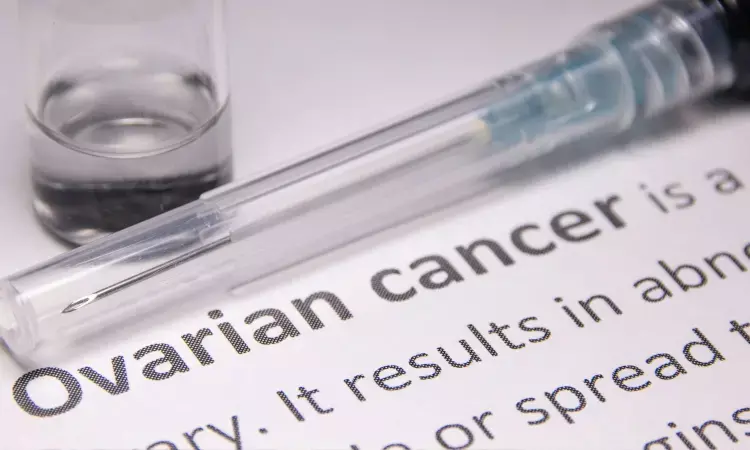- Home
- Medical news & Guidelines
- Anesthesiology
- Cardiology and CTVS
- Critical Care
- Dentistry
- Dermatology
- Diabetes and Endocrinology
- ENT
- Gastroenterology
- Medicine
- Nephrology
- Neurology
- Obstretics-Gynaecology
- Oncology
- Ophthalmology
- Orthopaedics
- Pediatrics-Neonatology
- Psychiatry
- Pulmonology
- Radiology
- Surgery
- Urology
- Laboratory Medicine
- Diet
- Nursing
- Paramedical
- Physiotherapy
- Health news
- Fact Check
- Bone Health Fact Check
- Brain Health Fact Check
- Cancer Related Fact Check
- Child Care Fact Check
- Dental and oral health fact check
- Diabetes and metabolic health fact check
- Diet and Nutrition Fact Check
- Eye and ENT Care Fact Check
- Fitness fact check
- Gut health fact check
- Heart health fact check
- Kidney health fact check
- Medical education fact check
- Men's health fact check
- Respiratory fact check
- Skin and hair care fact check
- Vaccine and Immunization fact check
- Women's health fact check
- AYUSH
- State News
- Andaman and Nicobar Islands
- Andhra Pradesh
- Arunachal Pradesh
- Assam
- Bihar
- Chandigarh
- Chattisgarh
- Dadra and Nagar Haveli
- Daman and Diu
- Delhi
- Goa
- Gujarat
- Haryana
- Himachal Pradesh
- Jammu & Kashmir
- Jharkhand
- Karnataka
- Kerala
- Ladakh
- Lakshadweep
- Madhya Pradesh
- Maharashtra
- Manipur
- Meghalaya
- Mizoram
- Nagaland
- Odisha
- Puducherry
- Punjab
- Rajasthan
- Sikkim
- Tamil Nadu
- Telangana
- Tripura
- Uttar Pradesh
- Uttrakhand
- West Bengal
- Medical Education
- Industry
Intraperitoneal carboplatin could be used as first-line treatment in ovarian cancer

Japan: An ORIGINAL ARTICLE entitled "Intraperitoneal Carboplatin for Ovarian Cancer - A Phase 2/3 Trial" written by Nagao et al. has mentioned the possibility of using the intraperitoneal carboplatin with dose-dense paclitaxel as an optimal first-line regimen before the commencement of poly(adenosine diphosphate–ribose) polymerase inhibitor maintenance therapy
Intraperitoneal chemotherapy effectively reduces mortality in patients with advanced epithelial ovarian cancer history. However, this is not used widely in practice. Researchers performed the Intraperitoneal Therapy for Ovarian Cancer with Carboplatin (iPocc) trial in women receiving intravenous paclitaxel (80 mg/m2 on days 1, 8, and 15 of a 21-day cycle) after an ovarian cancer diagnosis.
The control group patients were given IV carboplatin (dose-dense intravenous paclitaxel plus intravenous carboplatin [dd-TCiv]), and the experimental group received dose-dense intravenous paclitaxel plus intraperitoneal carboplatin (dd-TCip).
The progression-free survival (PFS) was the principal or primary outcome.
Secondary endpoints included overall survival, tumour response, treatment completion rate, and incidence of adverse events (AEs).
The study results could be summarised as follows:
- Six hundred fifty-five patients were randomized to treatment; median PFS was 20.7 and 23.5 months for dd-TCiv and dd-TCip, respectively, with a hazard ratio of 0.83.
- The PFS benefit with dd-TCip was consistent in patients with different baseline characteristics, stages, residual tumour size, age, and performance status.
- The treatment completion rates in the dd-TCiv and dd-TCip groups were 68.3 and 59.9%, respectively.
- There was a 10.1 % incidence of intraperitoneal catheter-related AEs in the dd-TCip group.
- No AEs in the dd-TCiv group were reported.
Based on the study’s finding, intraperitoneal carboplatin modestly prolonged PFS when given with dose-dense weekly paclitaxel regardless of residual tumour size, with no impact on noncatheter-related toxicities.
Japan Agency for Medical Research and Development funded the study.
The study’s limitations were the small population of non-Japanese patients, and limited generalizability, lack of molecular stratification.
Further reading:
BDS, MDS in Periodontics and Implantology
Dr. Aditi Yadav is a BDS, MDS in Periodontics and Implantology. She has a clinical experience of 5 years as a laser dental surgeon. She also has a Diploma in clinical research and pharmacovigilance and is a Certified data scientist. She is currently working as a content developer in e-health services. Dr. Yadav has a keen interest in Medical Journalism and is actively involved in Medical Research writing.
Dr Kamal Kant Kohli-MBBS, DTCD- a chest specialist with more than 30 years of practice and a flair for writing clinical articles, Dr Kamal Kant Kohli joined Medical Dialogues as a Chief Editor of Medical News. Besides writing articles, as an editor, he proofreads and verifies all the medical content published on Medical Dialogues including those coming from journals, studies,medical conferences,guidelines etc. Email: drkohli@medicaldialogues.in. Contact no. 011-43720751


